
Journal of the Japan Institute of Energy
Scope & Guideline
Driving Research for a Sustainable Energy Future.
Introduction
Aims and Scopes
- Energy Production Technologies:
Research on various methods and technologies for energy production, including advanced catalysts, biomass conversion, and hydrocarbon synthesis. - Energy Efficiency and Conservation:
Studies aimed at improving energy efficiency in industrial processes, transportation, and residential applications, emphasizing conservation behaviors and technologies. - Renewable Energy Systems:
Exploration of renewable energy sources such as solar, wind, and biomass, including their integration into existing energy systems. - Environmental Impact Assessments:
Research focused on evaluating the environmental implications of energy systems, including life cycle assessments and sustainability studies. - Energy Storage and Fuel Cells:
Innovative approaches to energy storage, particularly through fuel cells and batteries, addressing technological advancements and performance evaluations.
Trending and Emerging
- Hydrogen Production and Utilization:
A growing body of research is focused on hydrogen as a clean energy carrier, including production methods and applications in fuel cells, reflecting global trends towards hydrogen economy. - Biomass and Waste Valorization:
Increased attention is being given to converting biomass and waste materials into energy and valuable products, indicating a trend towards circular economy practices. - Energy Storage Innovations:
Research on advanced energy storage systems, particularly using novel materials and technologies, is trending, driven by the need for efficient energy management. - Environmental and Socio-economic Assessments:
Emerging themes include comprehensive assessments of energy systems' environmental impacts and socio-economic implications, crucial for sustainable energy transitions. - Integration of Renewable Energy Systems:
There is a notable increase in studies on the integration of diverse renewable energy sources into existing grids, addressing reliability and sustainability challenges.
Declining or Waning
- Traditional Fossil Fuel Technologies:
Research related to conventional fossil fuel extraction and processing methods appears to be decreasing, possibly due to a growing emphasis on renewable energy alternatives. - Coal-Based Energy Systems:
Studies focused on coal energy systems, including combustion and gasification technologies, are less prominent, reflecting a shift towards cleaner energy sources. - Low-Technology Biomass Applications:
Research on basic biomass applications is waning as the focus shifts towards more technologically advanced methods of biomass conversion and utilization. - Conventional Hydrocarbon Fuels:
There is a noticeable reduction in studies related to conventional hydrocarbon fuel efficiency and optimization, perhaps due to the increasing interest in alternative fuels.
Similar Journals
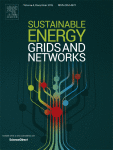
Sustainable Energy Grids & Networks
Connecting Ideas for Sustainable Energy ProgressSustainable Energy Grids & Networks, published by ELSEVIER, stands at the forefront of research in energy systems, contributing significantly to the fields of Control and Systems Engineering, Electrical and Electronic Engineering, and Energy Engineering and Power Technology. With an impressive impact factor, this journal is ranked in the top quartile (Q1) for key engineering categories, affirming its authority and influence within the academic community. The journal is dedicated to publishing high-quality research focused on the sustainable integration of energy systems and smart grid technology, which is crucial in addressing the pressing challenges of climate change and energy consumption. Although it operates on a subscription model, the rigorous peer-review process ensures that only the most innovative and impactful studies are disseminated, promoting advancements in renewable energy and sustainability. As a critical resource for researchers, professionals, and students, Sustainable Energy Grids & Networks provides a platform for the exchange of ideas that drive the future of sustainable energy solutions, fostering collaboration and knowledge-sharing across disciplines.

International Journal of Energy and Environmental Engineering
Driving Change with Cutting-Edge Research and TechnologyInternational Journal of Energy and Environmental Engineering, published by SPRINGER HEIDELBERG, is a leading platform for innovative research in the fields of energy and environmental engineering. With an ISSN of 2008-9163 and an E-ISSN of 2251-6832, this journal is dedicated to advancing knowledge and technology that intersects both energy and environmental disciplines. Recognized in the Q2 category for 2023 in both Energy (miscellaneous) and Environmental Engineering, this interdisciplinary journal aims to address global challenges in energy sustainability and environmental protection. The journal also boasts strong Scopus rankings, standing at Rank #73 in Environmental Science and Rank #28 in General Energy, highlighting its influential role within the academic community. Researchers, professionals, and students are encouraged to contribute and engage with cutting-edge studies that push the boundaries of knowledge and innovation in energy and environmental engineering.
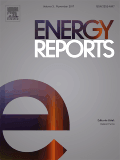
Energy Reports
Empowering Knowledge in the Evolving Energy LandscapeEnergy Reports, published by Elsevier, is a prestigious open access journal that serves as a vital resource in the field of energy research. Since its inception in 2015, this journal has swiftly ascended to become a key player in disseminating knowledge across various energy-related disciplines, evident from its impressive Q2 ranking in the miscellaneous category of Energy for 2023 and its notable position in the 78th percentile among over 70 journals in the general energy category, ranked 16th out of 73 on Scopus. Based in the United Kingdom, Energy Reports not only fosters innovative research but also promotes accessibility by providing open access to its articles, thereby ensuring that findings reach a global audience of researchers, professionals, and students. With a commitment to advancing sustainable energy solutions and technologies, Energy Reports plays a crucial role in shaping future energy policies and practices, making it an essential platform for scholarly communication in the ever-evolving landscape of energy research.
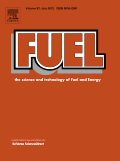
Fuel
Exploring the Future of Energy EngineeringFuel is a premier international journal published by Elsevier Science Ltd, showcasing critical advancements and insights in the fields of chemical engineering, energy engineering, power technology, and organic chemistry. With a significant history dating back to 1922 and continuous publication from 1970 to 2025, Fuel holds an impressive position in the academic community, reflected in its top-tier rankings—Q1 in multiple categories including Fuel Technology and Chemical Engineering for the year 2023. This journal is dedicated to exploring innovative research and application of fuel technologies, driving forward the dialogue on sustainable energy solutions. Researchers and professionals alike will find Fuel to be an essential resource, providing access to high-impact articles that contribute to advancements in methodologies and applications, while navigating the complexities of global energy challenges.
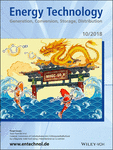
Energy Technology
Exploring Breakthroughs in Energy TechnologyEnergy Technology, published by Wiley-VCH Verlag GmbH, is a prominent peer-reviewed journal dedicated to advancing the field of energy research and technology. With an ISSN of 2194-4288 and an E-ISSN of 2194-4296, this journal has made a significant impact in the energy sector, holding a Q2 category ranking in the Energy (miscellaneous) category for 2023, and proudly positioned in the 77th percentile within the Scopus ranking for General Energy. Since its inception in 2013, Energy Technology has consistently published cutting-edge research, innovations, and reviews that cater to a wide array of topics including renewable energy, sustainable technologies, and energy efficiency. The journal does not offer open access, yet it remains a key resource for researchers, professionals, and students who are committed to exploring the dynamic field of energy. The journal's efforts to disseminate rigorous scholarship make it an invaluable asset for anyone looking to contribute to or understand the future of energy-related technologies until 2024.

Clean Technologies
Transforming Ideas into Sustainable PracticesClean Technologies, published by MDPI in Switzerland, is a pioneering open-access journal that has garnered significant recognition since its inception. Focusing on innovative solutions and practices for sustainability, it aims to serve the interdisciplinary field of clean technology while addressing pressing environmental challenges. With an impressive impact factor evidenced by its Q2 ranking in Environmental Science (miscellaneous) and Q3 in Global and Planetary Change, as well as a Scopus rank of #43 among a competitive pool of journals in these fields, Clean Technologies is positioned as a vital resource for researchers, professionals, and students alike. As a forward-thinking platform with open access since 2018, the journal emphasizes the dissemination of high-quality research, fostering collaboration and innovation in the quest for sustainable development. Located at ST ALBAN-ANLAGE 66, CH-4052 BASEL, SWITZERLAND, it also provides a comprehensive digital archive that allows for easy access to cutting-edge studies and findings relevant to global sustainability efforts.

International Journal of Renewable Energy Research
Empowering innovation in renewable energy research.International Journal of Renewable Energy Research (IJRER) is a distinguished peer-reviewed journal dedicated to advancing the field of renewable energy through innovative research and comprehensive analyses. Published by the esteemed INT JOURNAL RENEWABLE ENERGY RESEARCH, this journal has established itself as a vital resource for academics and industry professionals alike since its inception in 2011. With a focus on a wide array of topics in Energy Engineering and Power Technology and Renewable Energy, Sustainability and the Environment, IJRER has been recognized for its contributions, attaining a Q3 categorization in Energy Engineering and Power Technology and a Q4 rank in Renewable Energy for 2023. The journal is indexed in Scopus, demonstrating its global reach and impact, with notable rankings in both relevant categories. Researchers can access a wealth of valuable insights and findings that are crucial for fostering sustainable practices and technologies. Thus, IJRER plays a pivotal role in driving the future of renewable energy research and innovation.
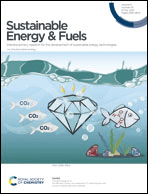
Sustainable Energy & Fuels
Unleashing Potential for Environmental SustainabilitySustainable Energy & Fuels is a leading journal published by the Royal Society of Chemistry, dedicated to advancing knowledge in the fields of energy engineering, fuel technology, and renewable energy solutions. With its ISSN of 2398-4902 and notable Q1 status in both Energy Engineering and Power Technology as well as Fuel Technology, this journal ranks impressively in the Scopus database, ensuring a strong platform for disseminating impactful research. The journal spans a comprehensive scope aimed at addressing the global challenges of sustainable energy, including innovative methodologies and technologies that promote environmental sustainability. Although it operates under a traditional access model, the journal is committed to providing high-quality content that engages researchers, professionals, and students alike. With significant contributions expected through 2024, Sustainable Energy & Fuels stands at the forefront of facilitating scholarly communication, inspiring advancements in energy technologies that align with sustainability goals.

Energy Material Advances
Empowering Innovation in Energy ResearchEnergy Material Advances, published by the American Association for the Advancement of Science, stands at the forefront of energy research, showcasing groundbreaking studies in the realm of renewable energy, fuel technology, and materials science. With the journal's commitment to open access since 2020, it aims to democratize knowledge and foster innovation across a global community of researchers, professionals, and students. The journal boasts an impressive impact factor, placing it firmly within the Q1 category across multiple disciplines including Energy (miscellaneous), Fuel Technology, and Renewable Energy, Sustainability and the Environment, highlighting its significance in advancing scholarly discussions. In the latest Scopus rankings, Energy Material Advances ranks among the top 10% of journals in its field, affirming its role as a pivotal resource for current and emerging trends in energy materials. The journal is dedicated to facilitating collaborative efforts and inspiring novel approaches to the challenges posed by energy sustainability and technological advancement.
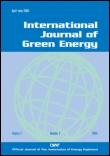
International Journal of Green Energy
Pioneering research in renewable energy innovation.The International Journal of Green Energy is a premier publication that plays a pivotal role in the field of renewable energy and sustainability. Published by Taylor & Francis Inc, this journal, with ISSN 1543-5075 and E-ISSN 1543-5083, has established itself as a crucial platform for sharing innovative research and developments from 2005 to 2024. With a commendable Q2 ranking in the category of Renewable Energy, Sustainability and the Environment, it ranks 100 out of 270 in Scopus, positioning itself in the 63rd percentile of its field. The journal is dedicated to advancing knowledge and fostering dialogue around green technologies and sustainable practices, providing invaluable insights for researchers, industry professionals, and students alike. Although it does not offer open access options, the journal's commitment to rigorous peer review ensures that only high-quality research is published, making it an essential resource for those seeking to explore and understand the complexities of green energy solutions.